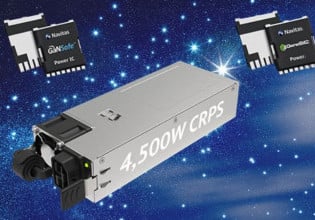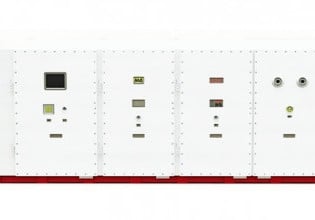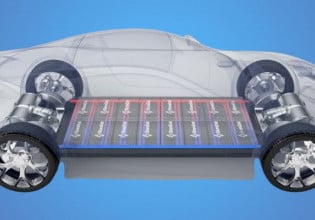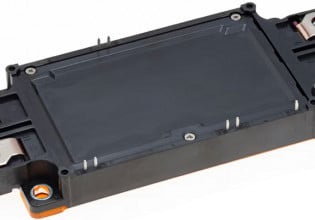At the 2012 PCIM fair in Nuremberg, Fairchild Semiconductor, Analog Devices, Inc. (ADI), Toshiba Electronics Europe (TEE), LEM and Phoenix Contact announced a variety of products ranging from DrMOS devices and isolated gate drivers to high-current connectors for electric vehicles and 600V superjunction power MOSFETs.
Fairchild was demonstrating the FDMF68xx Gen III DrMOS multi-chip module (MCM) family. Designed to enable a reduced inductor and output capacitor count, the FDMF68xx series saves up to 50 percent of board space as compared to conventional discrete solutions and improves efficiency to meet new energy standards. The FDMF68xx series significantly reduces switch ringing, using Fairchild’s high-performance PowerTrench® MOSFET technology, eliminating the need for using a snubber circuit in most buck converter applications.
The Gen III DrMOS MCM family supports both 3.3V and 5V Tri-State PWM input voltages for both digital and analog PWM controllers and a 30V device option makes the DrMOS adaptable for Notebook or UltraBook™ power systems. Providing better efficiency with over 1MHz switching frequency, increased maximum load current, and greater power density, the Gen III DrMOS series achieves efficiency standards targets while providing up to 60A per phase in a 6 x 6mm2 PQFN package.
Near the main entrance to the exhibition area, ADI introduced what it says is the industry’s fastest and most reliable isolated half-bridge gate drivers. Incorporating ADI’s award winning iCoupler® digital isolator technology, the 4-A ADuM3223 and ADuM4223 gate drivers are 4X faster than devices based on optocoupler technology and have a 50-year operating life. ADI’s new gate drivers are designed to improve the performance and efficiency of ac-to-dc and dc-to-dc power supplies, solar-power inverters and motor-control designs while meeting necessary safety requirements required for these applications.
The ADuM3223 and ADuM4223 isolated half-bridge gate drivers feature sub-55-ns propagation delay and less than 5-ns delay matching. The new gate drivers meet safety standards for up to 5-kV rms reinforced isolation and also provide 700-VPEAK galvanic isolation between the drivers’ high-side and low-side outputs, which minimizes the potential for cross conduction and improves reliability and equipment safety.
TEE introduced a new generation of superjunction technology for power MOSFETs. Toshiba’s new DTMOS-IV process, which is being deployed in the company’s new family of high-speed, high-efficiency 600V FETs, offers on-resistance ratings that are up to 40% lower than first-generation DTMOS products for the same die size. For example, a 600V MOSFET in a TO220SIS package has an on-resistance of 0.065Ω while a similar device in a TO-3P(N) package has an on-resistance of 0.04Ω.
Near the middle of Hall 12, LEM announced the HO series of current transducers targeted at the latest-generation of motor drives and inverters. The new series are open-loop devices, based on hall-effect current sensing technology that can measure, ac, dc or pulsed currents with a nominal value of 8, 15, or 25A RMS, with a response time of 2 to 6µs. Both of these parameters and several others are user-programmable by a simple serial digital bid-sequence, generated by the system’s host microcontroller. Other parameters that are programmable include reference voltage, over-current detection limits, fault reporting and low-power mode.
Further toward the back of Hall 12, Phoenix Contact introduced a comprehensive family of connectors for electric vehicle charging. The family includes devices that meet IEC, SAE and GB (China) interconnect standards. AC connectors are rated for up to 63A while the dc connectors are rated for up to 250A. In addition to offering ac and dc connectors, the company introduced a family of combined ac/dc connectors. The family includes both type 1 and type 2 connectors meeting both the IEC and SAE standards as well as connectors meeting both GB/T part 2 and GB/T part 3 requirements.






